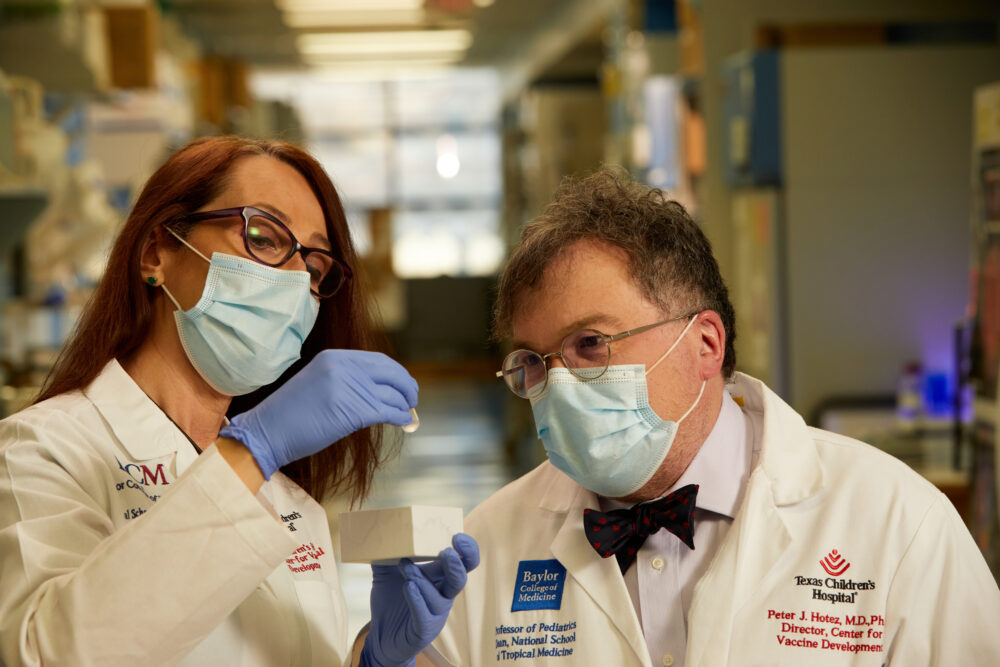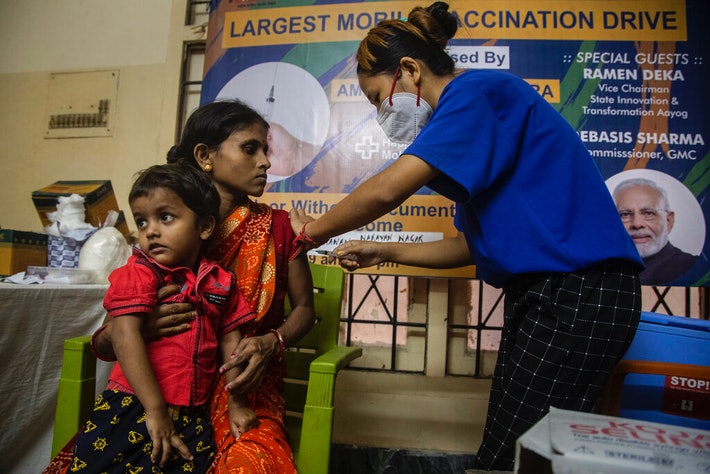 Courtesy of Texas Children's Hospital, via Houston Public Media
Courtesy of Texas Children's Hospital, via Houston Public Media Drs. Maria Elena Bottazzi and Peter Hotez, co-directors of the Texas Children’s Hospital Center for Vaccine Development.
Why CORBEVAX?
Scientists in the state of Texas in America have developed a new accessible COVID-19 vaccine (CORBEVAX) to combat low inoculation rates in low-income and underserved countries.
Hailed as “the World’s COVID-19 vaccine,” Texas Children’s Hospital and Baylor College of Medicine’s CORBEVAX uses the conventional method of taking a harmless protein from the virus and injecting it into the body to prepare the immune system for contact with the virus. The vaccine is classified as a protein subunit vaccine.
Because it uses well-established recombinant DNA technology, it can be produced at a large scale as local production manufacturing capabilities are already in place in many countries. It can also be stored in regular refrigerators so these vaccines can be churned out and distributed fairly easily. In contrast, the mRNA vaccine developed by Big Western Pharma is more expensive to produce and requires extremely low temperatures for transport and storage.
How this benefits the African Continent
The African continent has the lowest vaccination rates (just under 9%) caused by wealthy nations hoarding vaccine supplies. The development of CORBEVAX is a large step toward global vaccine equity which is critical to alleviating the pandemic. As people go unvaccinated, new variants could be deadlier than previous ones — putting the lives of many vulnerable people at risk, and prolonging the pandemic.
Drs. Peter Hotez and Maria Elena Bottazzi, the scientists at the center of this development, are providing the patent to the world with no strings attached and are working with smaller vaccine producers in other countries, including the Indian company Biological E. Biological E hopes to produce 1 billion doses of the vaccine in 2022. CORBEVAX can be produced at $2.50 per dose, about 1 tenth the cost of mRNA vaccines. The scientists have similar arrangements with other countries such as South Africa and Botswana.
This comes as debates over intellectual property are ongoing, led by Western pharmaceuticals who have refused to waive patents to increase vaccine access for low- and middle-income countries. Wealthier nations have scapegoated their stingy record on providing vaccines to underserved countries on vaccine hesitancy, based on the racist tropes that Africans are anti-science.
In reality, research has shown that there is a greater desire to take the COVID vaccine in lower and middle-income nations than richer nations, however, the media has done little to challenge the “vaccine hesitancy” narrative. Vaccine apartheid has also been exacerbated by wealthier nations donating close to expired vaccines to African countries, sometimes missing crucial equipment like syringes and with little notice to local officials to prepare for distribution. Infrastructure constraints make it difficult to deliver these close to expired vaccines, resulting in vaccine wastage.

